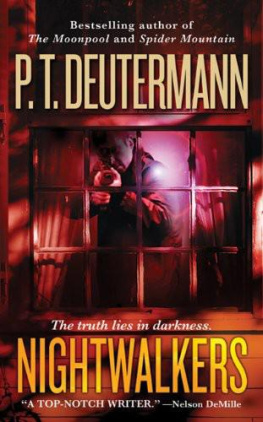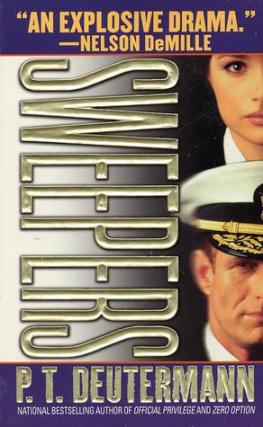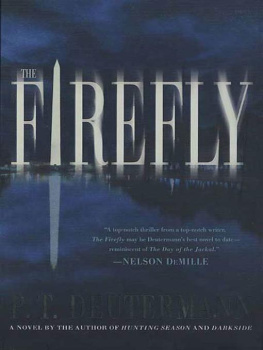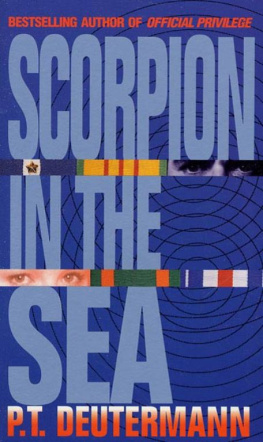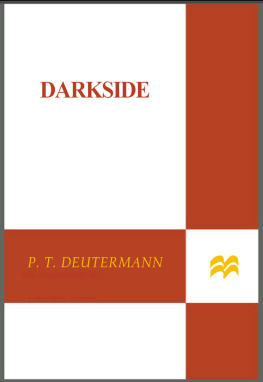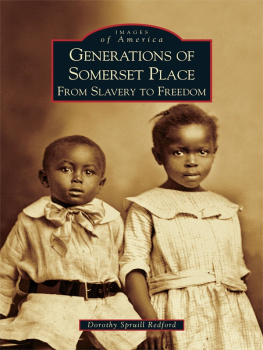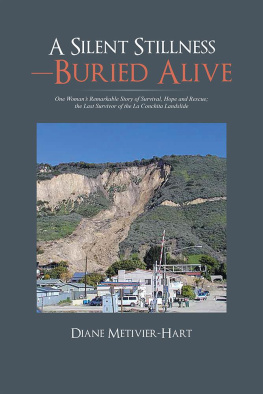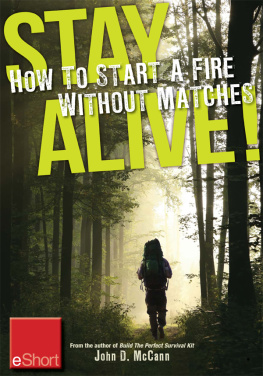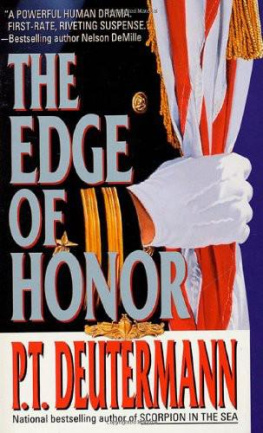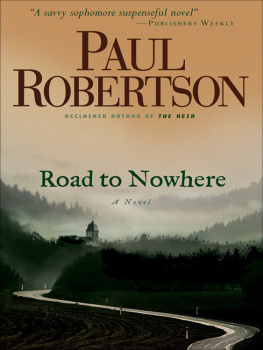NIGHTWALKERS
B OOKS BY P. T. D EUTERMANN
THE CAM RICHTER NOVELS
The Cat Dancers
Spider Mountain
The Moonpool
Nightwalkers
THRILLERS
The Firefly
Darkside
Hunting Season
Train Man
Zero Option
Sweepers
Official Privilege
NAVY ADVENTURE NOVELS
The Edge of Honor
Scorpion in the Sea
NIGHTWALKERS
P. T. DEUTERMANN

St. Mart in's Press
New York
This is a work of fiction. All of the characters, organizations, and events portrayed in this novel are either products of the author's imagination or are used fictitiously.
NIGHTWALKERS . Copyright 2009 by P. T. Deutermann. All rights reserved. Printed in the United States of America. For information, address St. Martin's Press, 175 Fifth Avenue, New York, N.Y. 10010.
www.stmartins.com
Library of Congress Cataloging-in-Publication Data
Deutermann, Peter T., 1941-
Nightwalkers P.T. Deutermann. -- 1st ed.font>
p. cm.
ISBN-13: 978-0-31237241-5
ISBN-10: 0-312-37241-8
1. Private investigators--Fiction. 2. Plantation owners--Fiction. 3. Plantations--North Carolina--Fiction. 4. Stalkers--Fiction. 5. North Carolina--Fiction. I. Title.
PS3554.E887N54 2009
First Edition: June 2009
10 9 8 7 6 5 4 3 2 1
NIGHTWALKERS
APRIL 1865
T hey came out of the darkness, riding lean, hungry horses. The engineer put down his unlit pipe and reached for the shotgun in the cab, but then relaxed. The riders were Reb cavalry, not goddamned bluecoats. He could tell by their slouch hats, the mishmash of uniforms and weapons, and those big CS belt buckles gleaming in the engine's headlight. The officer who appeared to be in charge rode right up to the locomotive. The others slowed to a walk and spread out in a fan around the train's guard detail, who were lounging in the grass beside the tracks while the engine took on water. The riders were greeting the men with soft drawls and questions about what was going on up there in Richmond city.
The officer wore the insignia of a major, and he tipped his hat to the engineer with his left hand while holding the reins close down to the saddle with his right. He was wearing a dirty white duster that concealed the lower half of his body.
"Major Prentice Lambert, at your service, suh," he declared. He had a hard, hatchet-shaped face with black eyes and fierce eyebrows. "This the documents train?"
The engineer said yes, a little surprised that the major knew. There were only four cars behind the engine and its tender, three of them passenger cars stuffed to the windows with boxes of official records from the various government departments up in Richmond. The twenty-man guard detail rode in the fourth car, but they were all disembarked for a smoke break and calls of nature. The guards, who were an odd mixture of old men, teenagers, and even some walking wounded from the trenches at Petersburg, seemed relieved to see Confederate cavalry.
The major nodded, as if the engineer's answer were hugely significant. The engine puffed a shot of steam from the driver cylinder, spooking the major's horse sideways, but his rider held him firmly.
"Any more trains behind you?" the major asked, shifting his reins to his left hand as the horse danced around.
The engineer shook his head. "We heard ol' Jeff Davis took one south two nights ago, but ain't nothin' comin' down thisaway that I know of. Jig's 'bout up in Richmond."
"All right, then," the major said. He raised the big Colt Dragoon he'd been holding down beside his saddle horn, pointed it at the engineer's belly, and fired.
The engineer sat down hard on the steel grate of the engine cab, the wind knocked clean out of him and this awful, ripping feeling in his guts. He grasped his midsection with both hands and felt the blood streaming. He was dimly aware of more shooting now, as that arc of cavalrymen also opened fire, shooting down the stunned soldiers where they sat in the grass or leaned against trees, all their weapons still back on the train. He bent over to look down at his middle, lost his balance, tumbled off the engine steps onto the cinder bed, and then rolled into the grass. His knees stung where he'd hit the track bed, but then that pain faded and he relaxed into the sweet feel of that long, cool grass against his cheek. His middle was going cold now, and his legs were buzzing with pins and needles.
He looked back up at the train, his vision shrinking into a redhazed tunnel. He saw a single white face at the nearest window in the front car, a young face, no more than a kid, maybe fifteen, sixteen. One of the guards? He tasted salt in the back of his throat, and it was becoming really hard to get a breath of air.
Why hadn't that kid gotten off the train? What was he doing in there among all those boxes, while his comrades outside were being slaughtered like beeves?
One of the horsemen saw the kid's face and surged his horse forward, his black cap-and-ball pistol pointing at the window. The engineer heard the major's voice call out, "No. Not him. Leave that one be."
The horseman reined up. "That's your spy? That boy?"
"Train was right here when it was supposed to be, weren't it?"
"Yeah, but you said, now. No goddamned witnesses."
"There won't be," the major said, getting down off his horse, "but I need to know one more thing."
Then the engineer heard the other horseman swear. He realized he'd been spotted, eavesdropping on their conversation. He tried to crawl up the bank, trying to get under the locomotive, but his limbs had turned to rubber. He thought he heard the major say, "Oh, goddammit," and then a bolt of lightning exploded in his head and he was gone to see the Baby Jesus.
THE PRESENT
R ight here's where it happened," the Realtor said, puffing a little as we climbed the embankment to the abandoned railroad line. "April 4th, 1865. Right up here. About an hour after sundown."
It was an early spring day, and the faded right-of-way pointed down to the Dan River on my right. The rails and ties were long gone. All that remained of the nineteenth-century trestle was the stone abutments on both sides of the river and the stumps of pylons out in the current. The abutment on the Carolina side was fortified, complete with a tower for sharpshooters and two pads for cannons. On the Virginia side the abutment was a plain stone wall. Beyond it stood a dense grove of what the Carolina locals called Virginia pines, supervised by a few ancient, lightning-bit oaks.
"They waited over there, in those woods," he said, pointing to our left, where the rail line bent around the base of a small hill and then disappeared into a notch in the woods. "This was a waterin' stop--see that iron tower?"
A four-legged, rusting steel structure crouched to our left. At its base were the remains of a barrel-shaped water tank, perhaps ten feet in diameter. The wooden staves were gone, but the hoops and bands were still there.
"The locomotives would stop under that tower and lower a water hose into the tender. That's what they were doin' when them bastards rode out of those woods yonder and started shootin'. They caught the guards with their pants down, some of them literally so."
"They were after gold?"
He frowned. "That gets a little fuzzy, history-wise," he said. "Supposedly the train was carryin' important documents, government records and such. It could have been carryin' part of the Confederate treasury, but ol' Jeff Davis had already come through with the bulk of it, on his way to gettin' caught wearin' a dress down in Georgia. Even so, yeah, most folks think there was gold behind what happened here."

